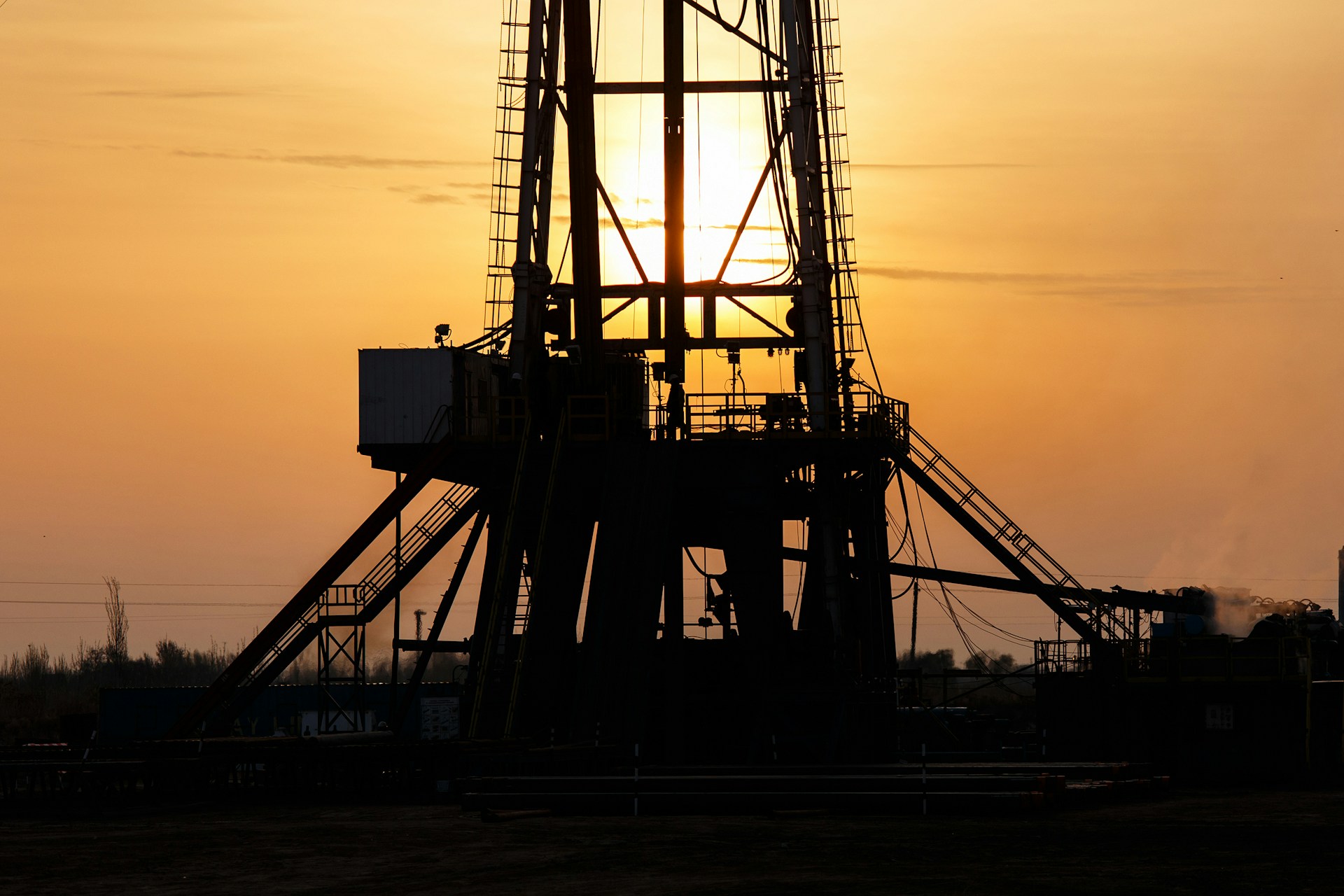
HSE Recruitment in Oil & Gas: Filling Safety & Compliance Jobs
09 Apr, 20258 Minutes
Hiring for HSE roles has become one of the biggest challenges in oil and gas. Projects are expanding, safety standards are stricter, and the pool of experienced professionals is shrinking. Many senior HSE specialists are retiring, and not enough qualified candidates are stepping in to replace them. For hiring teams, that’s creating real risks to both safety and delivery.
It’s easy to overlook how much HSE roles shape operations. The right people keep projects compliant, efficient, and reputationally protected. The wrong hiring strategy increases downtime, delays, and legal exposure. And with the current shortage, businesses can’t afford to be reactive.
This blog looks at what’s driving demand, which roles are hardest to fill, and what oil and gas companies can do to secure and retain the right safety talent.
Why The Demand for HSE Professionals Is Rising
Health, safety, and environmental roles have always been critical in oil and gas. Across upstream and offshore operations, workers face risks that don’t exist in most other industries—chemical exposure, pressure systems, fire hazards, and confined spaces. Strong internal frameworks are essential, but those frameworks only work when the right people are in place to lead them.
There’s also growing pressure around environmental performance. From spill prevention to emissions management, companies are expected to prove they can operate responsibly. Poor handling leads to costly fines, reputational damage, and project delays. Hiring experienced HSE professionals is one of the most effective ways to avoid these issues before they escalate.
- Safety-led businesses see fewer shutdowns and more predictable output
- Strong HSE processes improve operational performance across project phases
- Companies with established frameworks report up to 20% higher efficiency
Despite that, the industry is facing a real shortage of qualified safety specialists. Many experienced hires are approaching retirement, and fewer professionals are entering the sector. Most roles require hands-on knowledge that can’t be developed overnight.
HSE recruitment is already a challenge for many teams. Without action now, the gap will only grow—and the risks will grow with it.
The Hardest HSE Roles to Fill in Oil & Gas Recruitment
Some HSE roles in oil and gas require such a specific blend of qualifications, site experience, and regulatory knowledge that the hiring pool is extremely limited. These are positions with high accountability and often high turnover, particularly in offshore or project-based settings.
Here are the roles companies are struggling most to recruit for:
HSE Managers
These roles involve full oversight of safety, health, and environmental compliance across all operations. Employers often look for candidates with at least ten years of sector experience and advanced certifications. The responsibility level is high, and finding individuals who can balance regulatory expectations with operational demands is becoming more difficult.
HSE Engineers (offshore and upstream)
These positions require deep technical knowledge in emergency response, risk analysis, and environmental mitigation strategies. Working conditions are often remote and hazardous, making the role less attractive to younger candidates.
Regulatory Compliance Specialists
New legislation across multiple regions means these professionals must stay across evolving rules at a national and international level. Businesses that lack dedicated compliance roles risk fines, shutdowns, or reputational damage.
Environmental Impact Specialists
As sustainability targets increase, demand is rising for professionals who can deliver impact assessments, emissions control strategies, and net-zero frameworks. These skills are difficult to develop without project-based experience, making recruitment a challenge.
HSE Coordinators in Smaller Companies
Smaller oil and gas firms often need HSE generalists who can manage audits, policies, incident response, and training—usually with less support and fewer resources. These hybrid roles are often overlooked or underfunded.
The difficulty isn’t in finding more people. It’s in hiring people with the right background to operate safely, legally, and confidently in complex, regulated environments. HSE recruitment needs to be built around long-term planning, cross-sector awareness, and a real understanding of the risks that come with every hire.

Why Oil & Gas is Struggling to Recruit HSE Professionals
The oil and gas recruitment market for HSE talent is under pressure from all sides. Compliance expectations are increasing. Retirements are accelerating. And demand for niche safety expertise is rising faster than most companies can respond to.
Therefore, hiring specialised Health, Safety, and Environment (HSE) professionals in the industry is becoming increasingly difficult—especially for teams trying to meet high regulatory and environmental standards with fewer available candidates.
Here’s what’s making it so difficult:
The Experienced Workforce is Leaving
More than 50% of skilled oil and gas professionals are expected to retire within the next decade, according to the Energy Workforce & Technology Council. This includes many HSE leaders and site-based experts who carry decades of knowledge. As these professionals exit the workforce, there are fewer people stepping in to replace them.
Brexit has also reduced the pool of qualified professionals in the UK by limiting access to EU-based candidates—particularly for offshore recruitment and compliance-led roles.
Highly Qualified Candidates are Harder to Reach
Many HSE roles require niche certifications such as NEBOSH, CSP, or QEP, along with real-world experience in high-risk environments. But the people with those credentials are often settled, passive, and hard to engage. According to a Deloitte report, 70% of executives already report shortages in technical and safety-critical roles.
These roles aren’t just difficult to hire for—they’re becoming more complex and more specialised, limiting the number of viable applicants.
Younger Candidates Aren’t Entering the Industry
Just 12% of the oil and gas workforce is under 30. Many graduates and early-career professionals are moving into renewables, ESG consulting, or infrastructure projects that offer clearer career paths and better flexibility. Oil and gas employers are now competing for the same safety talent but with fewer cultural advantages.
Sustainability is Splitting the HSE Skillset
HSE is no longer one role. It now includes carbon tracking, digital reporting, and automation. Professionals who once focused solely on safety and compliance are being pulled into new areas of work, making recruitment more fragmented and harder to plan for.
Compliance pressure is Adding Urgency
Stricter legislation and cross-border regulatory expectations mean oil and gas regulatory compliance roles are now mission-critical. These hires can’t be delayed—but finding candidates with the right experience across multiple jurisdictions is increasingly difficult.
To keep HSE recruitment on track, employers need to rethink how they engage passive candidates, how they retain internal knowledge, and how they appeal to the next generation.
How Companies Can Improve HSE Recruitment and Retention
The pressure to secure qualified HSE professionals is increasing across the oil and gas industry. With experienced workers retiring and other sectors drawing candidates away, recruitment alone won’t solve the challenge. Companies need to focus on long-term retention, internal development, and a more candidate-led approach.
To compete for the best HSE jobs in oil and gas, businesses should take practical steps that reflect what today’s workforce actually values. That means improving the appeal of the role, investing early, and building in flexibility from the start.
Focus areas include:
Showcasing employer value: Communicate a clear commitment to safety, sustainability, and progression. Use job descriptions, social channels, and interviews to highlight this.
Benchmarking salaries and benefits: With high demand across the industry, compensation packages need to reflect the value of strong HSE performance. Include relocation, retention bonuses, or training incentives where possible.
Improving job descriptions: Tailor ads around required skills such as regulatory compliance, risk assessment, and certifications like NEBOSH or QEP. Mention digital tools like sensors, data platforms, or drones.
Sourcing from adjacent sectors: Consider HSE professionals from heavy manufacturing, logistics, or chemicals. With proper onboarding, they bring useful safety experience into oil and gas HSE roles.
Building internal career pathways: Graduate programmes, apprenticeships, and structured learning plans help companies retain early-career HSE talent and fill future gaps internally.
Working with specialist oil and gas recruitment agencies: These recruiters already understand the technical demands of the sector and can identify pre-qualified candidates faster than generalist firms.
With increasing competition for qualified candidates, the companies that take HSE recruitment seriously now will be the ones with the most stable operations in future.
Oil & Gas Companies Need a Stronger HSE Hiring Strategy
The industry is facing a shortage it can’t afford to ignore. With stricter compliance standards, high retirement rates, and a smaller pool of experienced HSE professionals, recruitment can no longer be reactive. A short-term fix won’t be enough.
Companies that want to stay operational and compliant need a clear HSE hiring strategy in place now. That means more than just raising salaries. It means investing in internal development, expanding where you source talent, and adapting your offering to meet changing candidate expectations.
The longer businesses wait, the harder this will become. Oil and gas recruitment is already under pressure, and the demand for niche safety expertise will only increase. The time to act is now.
Need support with HSE recruitment?
Whether you're hiring HSE Managers, Regulatory Compliance Specialists, or Environmental Engineers, we can help. Our team understands the technical demands of safety roles in oil and gas and connects you with pre-vetted professionals who are ready to make an impact. We support permanent, contract, and international hires, helping you stay ahead of compliance risks and project delays.
Speak to Orion’s oil and gas recruitment team today to find the HSE talent your business needs.


